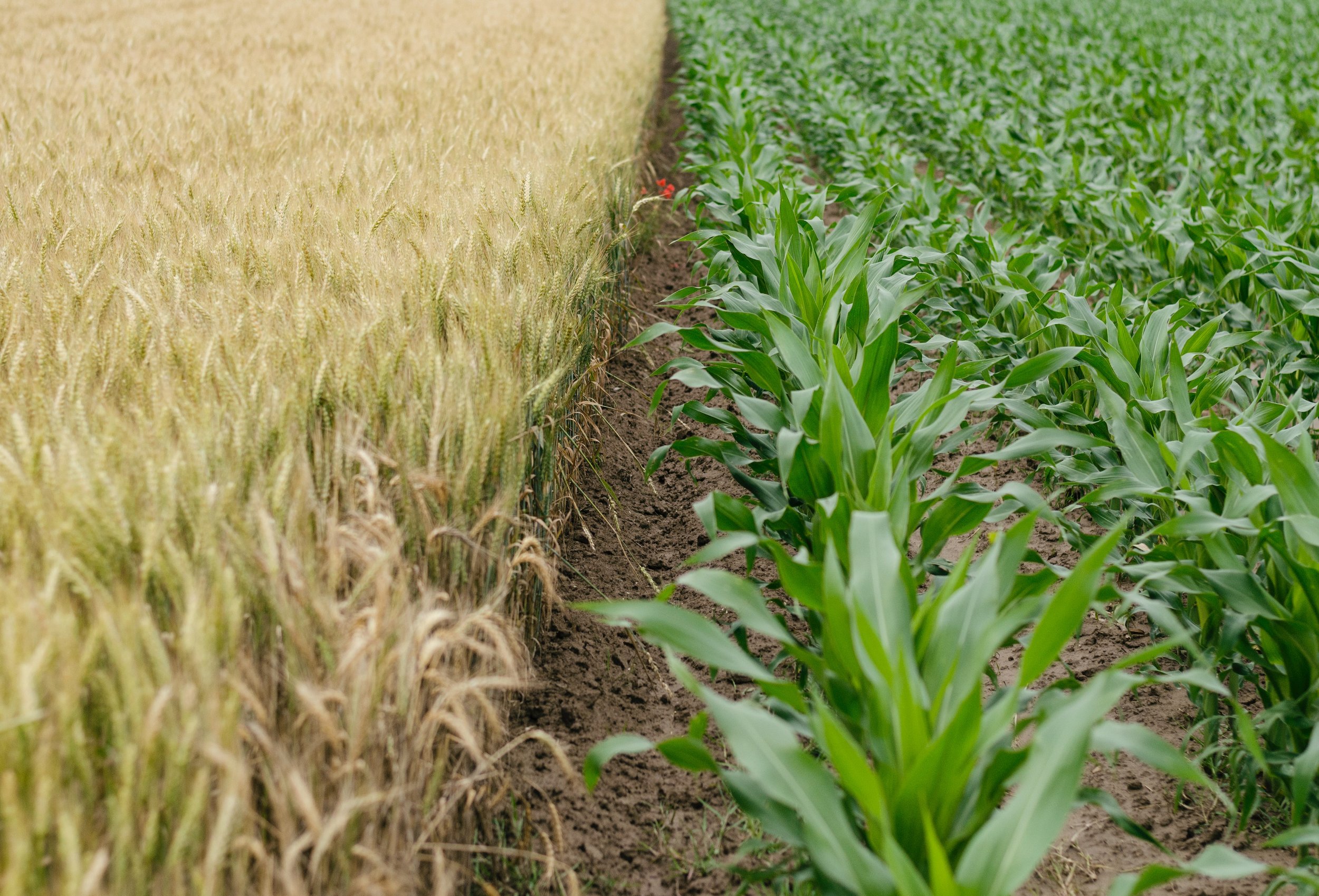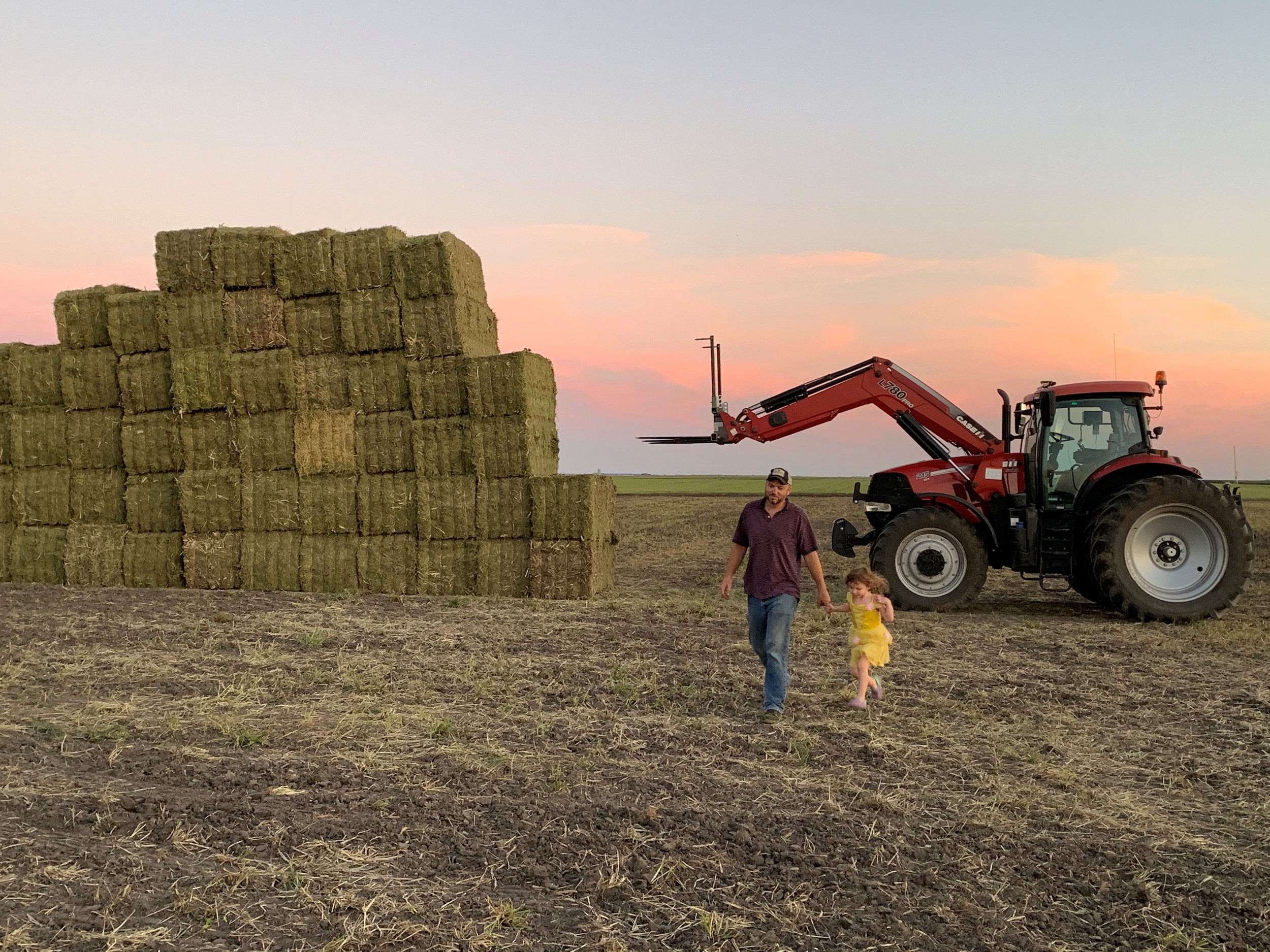
United States
SLM Partners manages separate accounts in the USA focused on scaling up organic and regenerative farming systems. Our investments support the production of grains, forages, and specialty crops through the use of organic sources of crop nutrition, multi-year crop rotations, and cover crops. Our core strategy is to acquire conventional cropland and partner with local farmers to convert this land to organic production.
Consumer demand for organic food is growing strongly, and organic food sales are now 6% of total food sales in the USA. There are strong price premiums for many organic crops and sustainably grown foods. Yet, American farmers have been slow to transition to more sustainable production methods because of perceived financial and agronomic risks as well as a lack of capital partners with structures that share in the risks and benefits of these farming practices. Our strategy helps to overcome these barriers.
We identify skilled organic farmers who want to expand, work with them to find suitable land, acquire this land and make it available to the farmers through long-term, flexible leases. In effect, we share some of the risks of the 3-year organic transition with farmers and share in some of the higher profitability that comes from organic farming. Our investors are institutions and family offices with a long-term perspective and a commitment to sustainability.
If you are a farmer and want to learn more about what we offer, click here.

Our Impact
Well-managed organic farms – using regenerative practices such as cover crops, diverse rotations, organic fertility and livestock grazing – can deliver many environmental benefits. Compared to conventional chemical-based farms, they support more biodiversity and reduce nutrient run-off into waterways. They have healthier and more biologically active soils with higher levels of soil organic matter. Organic farming can contribute both to climate change mitigation and adaptation by increasing soil carbon and reducing emissions associated with nitrogen fertilizers.
Our strategy has positive social impacts by helping organic family farmers expand and thrive. We provide long-term access to land (instead of the leases of 1, 2 or 3 years that are common) and share in some of the financial risks of organic transition. We help farmers achieve higher levels of income, which contributes to the revitalization of rural economies. The transition to organic farming also reduces the amount of pesticide residues in food and eliminates the risk of pesticide poisoning for farm workers.

Case Study: Wyatt Muse, Illinois
Wyatt is an innovative young farmer from Champaign County, Illinois. He was born and raised on a farm and has held a paid farm job since he was 13. He operates his own farmland and is also a partner in Dirt Road Organics, which operates on over 700 acres of land utilizing organic practices (either in transition or fully certified) out of 3,000 total acres farmed, mostly accessed through leases.
Wyatt was looking to expand his organic acreage, but it was hard to reconcile this with the annual cash leases that are typical in his area. The 36-month organic transition meant he would incur financial losses during the first two years; and there was no certainty that he would be able to lease the land for the long-term and therefore earn a return on his initial investment. This attracted him to our ‘farmer first’ investment programme.
We worked with Wyatt to identify two suitable farms in his area totaling 193 acres (Pike Farm and Condon Farm) and acquired these parcels in December 2019 and November 2020. We entered into a 10-year lease with Wyatt, under which he would pay a reduced rent during the organic transition and then a standard rent plus a profit share after the farms are certified. Wyatt started the organic transition on Pike Farm in 2020 by planting alfalfa, a perennial forage crop that increase soil organic matter and soil fertility. The first year of organic transition on Condon Farm will be 2021. Wyatt plans to grow organic corn, soybeans, wheat and oats, mostly for food markets, as well as alfalfa for livestock. Wyatt utilizes regenerative farming practices, using cover crops, biological fertility, and diverse rotations, while seeking to minimize tillage.
We worked with a specialist carbon project developer to carry out an assessment of the carbon sequestration potential of the farms under Wyatt’s organic management. Using the COMET-Farm tool, their analysis showed that the farms are expected to sequester 2,783 tonnes of CO2e over ten years, at a rate of 1.45 tonnes per acre per year - an impressive rate of carbon storage for cropland.




